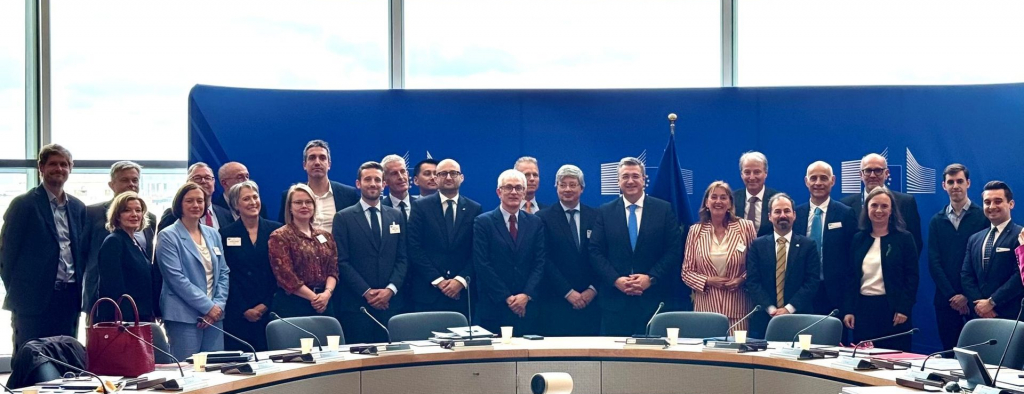On 15. April, EPF Management Board member Willy Smeulders attended the Implementation Dialogue concerning high-speed rail in Europe, organised by Commissioner Tzitzikostas, which will also serve as an input for the development of the high-speed rail masterplan mentioned in the Commissioner’s mission letter.

© European Union
Implementation Dialogues are part of the EU’s efforts to engage with companies and stakeholders to support compliance with EU law. President von der Leyen tasked all Commissioners to organise two Implementation Dialogues per year “to align implementation with realities on the ground”. This is the first of such dialogues.
Participants included high-level stakeholders from rail operators, infrastructure managers, passenger organisations, cities and civil society, trade unions, private investors, rolling stock leasing companies, construction and engineering companies, EIB, ERA, EU Rail Joint Undertaking. The summary report is available here.
The main points raised by EPF:
➡️ Passengers want a public transport system that is affordable, reliable, accessible, coordinated and sustainable, with sufficient capacity to get people comfortably to where they want to go at the times they wish to travel, using whichever combination of modes is most efficient overall, in social and environmental as well as economic terms.
➡️ Public transport works best for people when it provides a seamless network of services – the first and last mile of any journey being no less important than the high-speed journey in between. A plan for a high-speed network must therefore be complemented by good local and regional connections, with hubs playing a vital role.
➡️ We need integration at many levels, not only infrastructure but also timetables, information and ticketing, and passenger protection in case something goes wrong. Passengers should have access to unbiased, dynamic journey information, enabling them to compare and combine different transport operators and/or modes as suits their needs.


 Stay informed!
Stay informed!